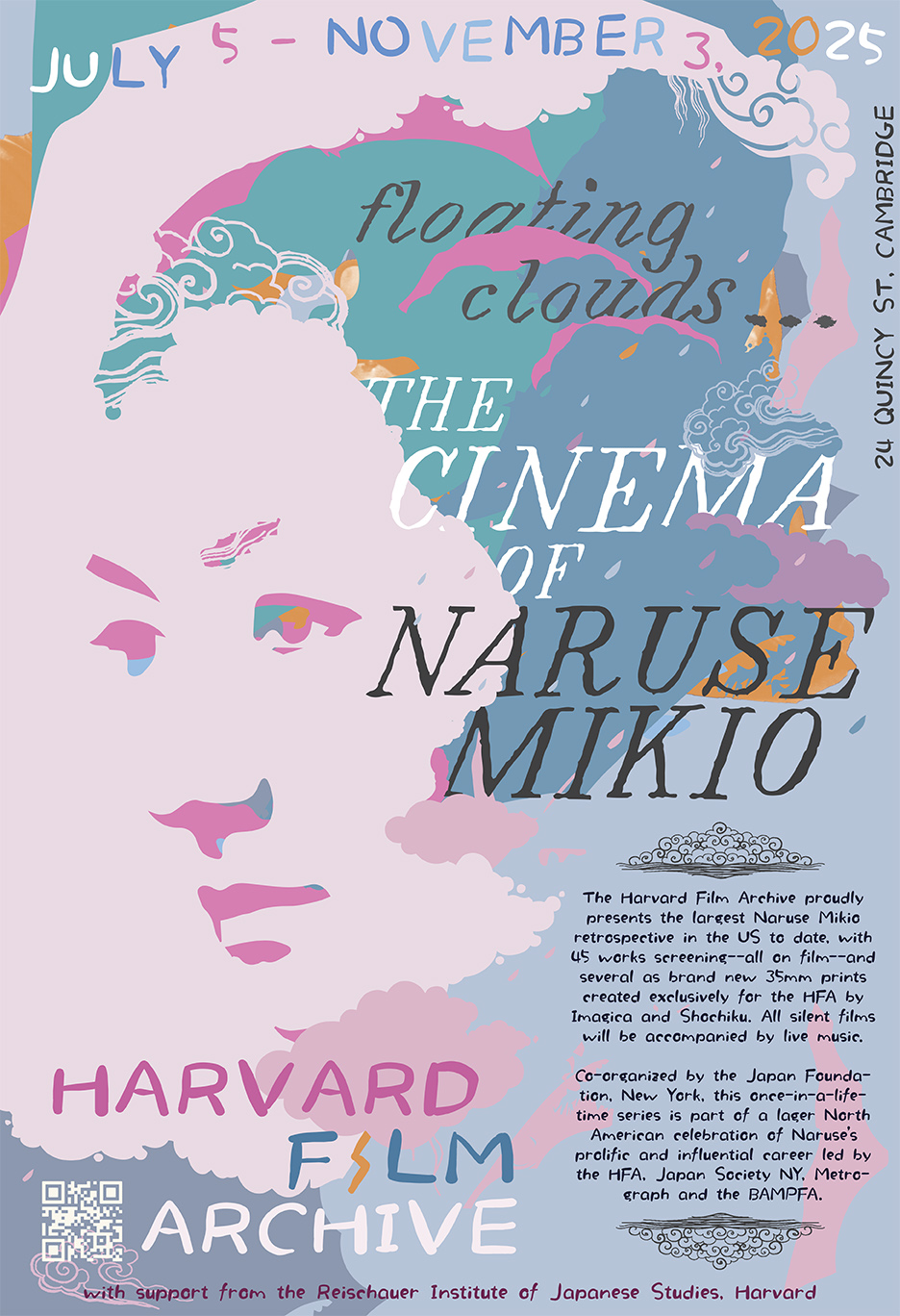Double Film screening: Wife! Be Like a Rose! (Tsuma yo bara no yo ni) and Flowing (Nagare)
For tickets & detailed information, please click here.
Wife! Be Like a Rose! (Tsuma yo bara no yo ni): Written by Naruse and based on Nakano Minoru's play Two Wives, the lively Toho talkie Wife! Be Like a Rose! won the Kinema Junpo prize and became one of the first Japanese films to receive a theatrical release in the United States. Chiba Sachiko plays office worker Kimiko, whose boyfriend's parents want to meet her estranged father (Maruyama Sadao) before approving their engagement. The visit to her father—who resides with his mistress and their children—forces the self-described modern Kimiko to face her contradictory thoughts about marriage, money and her poet mother (Ito Tomoko), whom she blames for her father's departure. – Kelley Dong
Directed by Naruse Mikio.
With Chiba Sachiko, Hanabusa Yuriko, Ito Tomoko.
Japan, 1935, 35mm, black & white, 74 min.
Japanese with English subtitles.
Flowing (Nagare): The third film Naruse made in 1956, the intricately structured Flowing is based on the semi-autobiographical serial novel by Koda Aya. A cast of iconic Japanese actresses across generations (from Kurishima Sumiko and Tanaka Kinuyo to Takamine Hideko and Okada Mariko) appear as the neighbors and tenants of a struggling geisha house. Naruse tightly interlocks each woman's story of survival through hearsay and gossip. Screenwriter Tanaka Sumie notes that some feminist groups disapproved of her participation because of an increasing backlash against geisha. But the power of Flowing derives from the precise and class-conscious nuances with which it portrays women whose livelihood and sense of identity are entwined with tradition. – Kelley Dong
Directed by Naruse Mikio.
With Tanaka Kinuyo, Yamada Isuzu, Takamine Hideko.
Japan, 1956, 35mm, black & white, 116 min.
Japanese with English subtitles.
Harvard Film Archive Floating Clouds... The Cinema of Naruse Mikio film series co-presented by the Japan Foundation and co-sponsored by the Reischauer Institute
